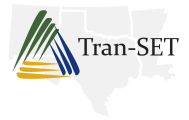Document Type
Report
Publication Date
10-2018
Abstract
In many communities, pedestrian infrastructure is discontinuous, inaccessible to those with physical disabilities, and poorly maintained. Correcting these problems would be a first step in providing infrastructure to achieve the active travel and related transportation goals of many communities. One nearly universal challenge to maintaining sidewalks in a state of good repair and addressing environmental justice concerns is an adequate, sustainable, and equitable source of funding. Municipal governments across the country maintain and repair their streets and roadways; however, most require residents to maintain and repair public sidewalks adjacent to their property. These policies are difficult to enforce and may be at least partly responsible for the poor condition of many sidewalks. They may also place a relatively high cost on low-income households. We evaluate three alternative options for financing the maintenance of public sidewalks in Albuquerque, New Mexico: increasing the gross receipts tax (GRT), the gasoline excise tax, or the property tax. These are broad-based taxes that many municipalities already levy to pay for public infrastructure, including streets. We conclude that any of the alternatives would perform better than policies that require adjacent property owners to maintain public sidewalks. They are generally less regressive, cost less on average, and would allow municipalities to more effectively manage sidewalk assets. The differences between the alternatives are relatively minor compared to their benefits. Additional considerations should include how the revenue from each tax may change over time.
Recommended Citation
Rowangould, G. (2018). Sustainable and Equitable Financing for Pedestrian Infrastructure Maintenance. Retrieved from https://repository.lsu.edu/transet_pubs/13


Comments
Tran-SET Project No. 17PPUNM01